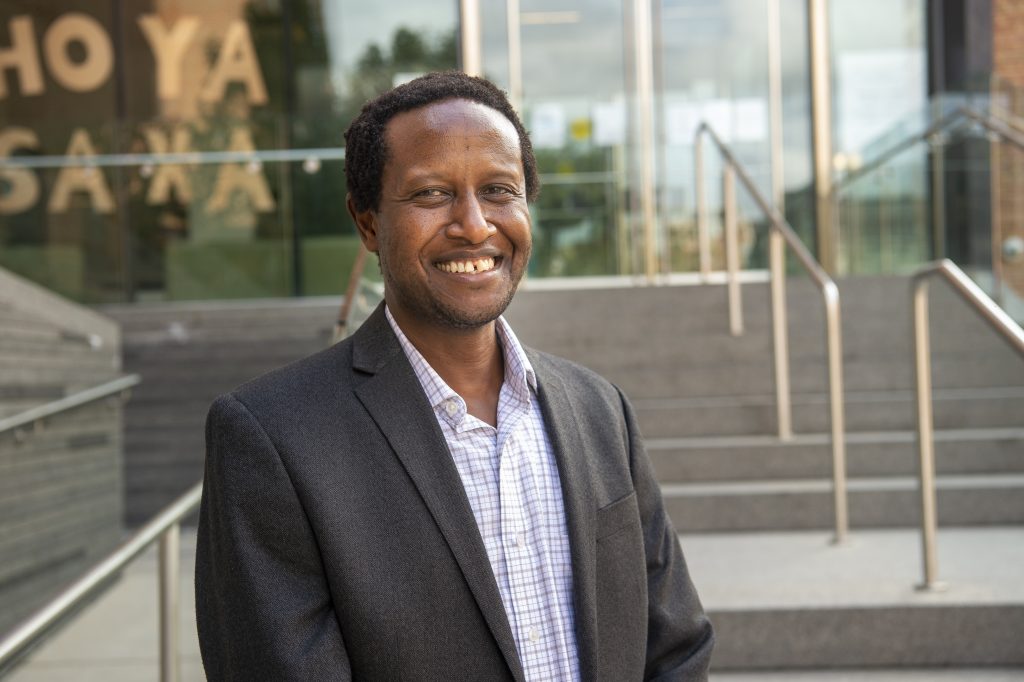Breaking barriers and accelerating international problem-solving
Professor James Habyarimana creates affordable, immediately available solutions to improve health and education globally.
Professor James Habyarimana knows that the solutions to address barriers to better health and education outcomes in developing countries will come in a matter of time. He believes policymakers will be able to solve those problems in the long run, but he wants to speed up the timeline, asking “is there some way to get to that long run faster?”
Habyarimana, whose research centers on identifying low-cost solutions to health and education problems, says his upbringing played a major role in drawing him to that work. Raised in Mbarara, Uganda, he realized after he left the country that people die too frequently from preventable causes. Initially, he planned to pursue engineering to combat issues such as unsafe roads and unreliable access to electricity. But after having dinner with an economist before starting undergraduate classes at the Massachusetts Institute of Technology, his perspective shifted.

“I was convinced that I had to study what this guy studied, because I was so impressed by the way he thought about the world, and I thought, ‘I need that,’” Habyarimana says. He double majored in economics and civil engineering, eventually earning his master’s and Ph.D. in economics at Harvard University and pivoting away from engineering entirely. He joined the Georgetown faculty in 2004.
Habyarimana sees similarities between his initial ambitions and the work he does now. “In some ways, you’re trying to solve some kind of problem,” he says. “Usually in engineering it’s a physical problem. I think in the work that I do, it’s in some ways a social problem: how we organize resources and incentivize people to deliver some outcome.”
His ongoing projects include working to advise policymakers on a program that provides teachers in Tanzania with feedback on how they can improve educational efficiency for primary school children. Literacy rates can lag among these students, and Habyarimana worked alongside McCourt Assistant Teaching Professor Jacobus Cilliers on strategies to evaluate the effectiveness of the program and ensure its findings are implemented.
I think in the work that I do, it’s in some ways a social problem: how we organize resources and incentivize people to deliver some outcome.
James Habyarimana
Habyarimana has also worked with Georgetown Economics Professor William Jack on a project involving road safety to reduce traffic injuries and fatalities, which are often higher in developing countries. A review of insurance records in Kenya showed that in up to two thirds of accidents, the driver was at fault; Habyarimana and Jack worked with advertising agencies to develop stickers aimed at bus riders, urging them to speak up when drivers were reckless. Habyarimana has tested this program in Tanzania and Uganda, and is exploring deploying it in Nigeria.
Habyarimana shares insights learned in the field with students, such as how to make a health minister in a particular country excited about a policy idea. “I spend a lot of time trying to do this, and I fail a lot,” he says, “but I can certainly share both the things that don’t work and the things that have worked.”
